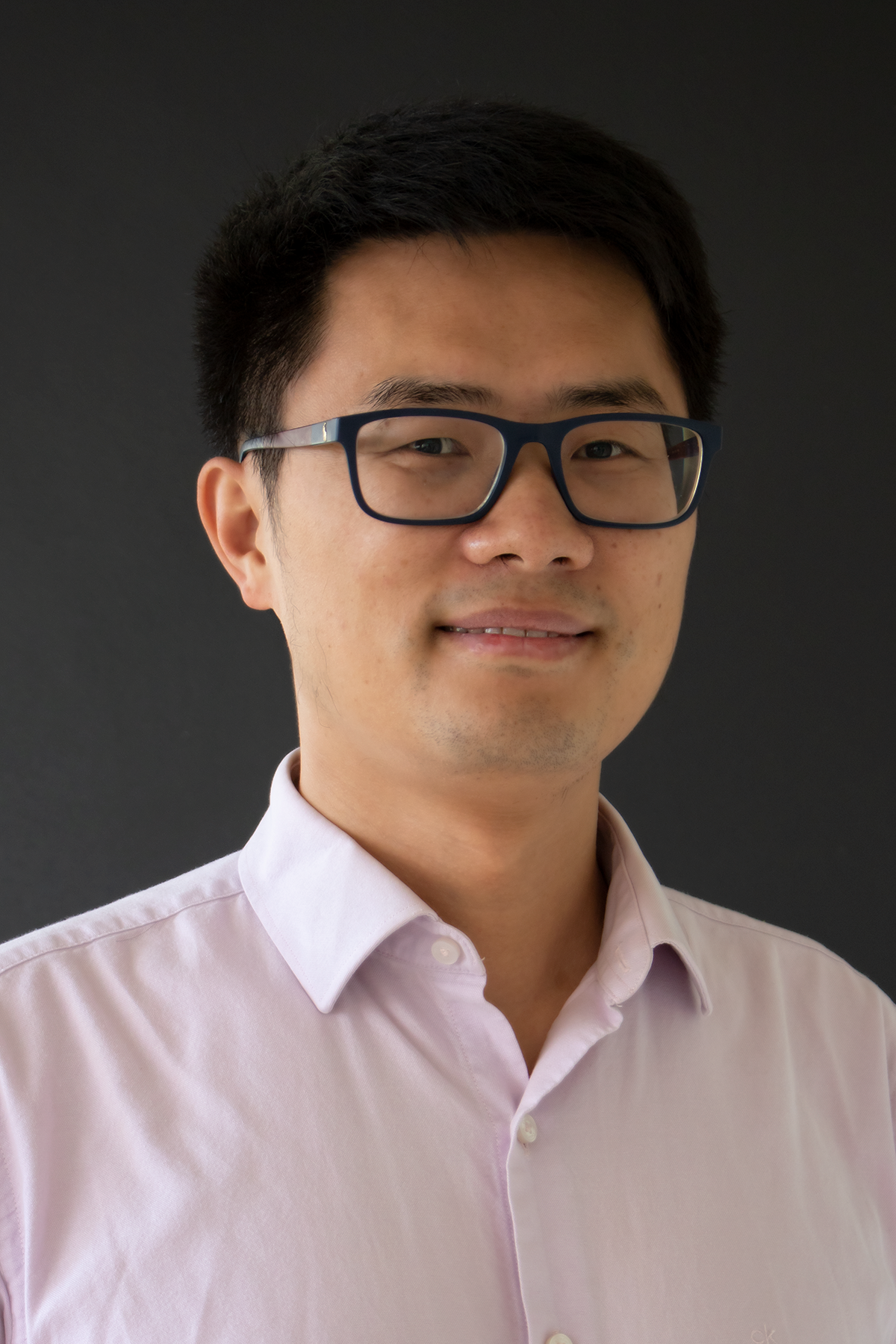
Biography
A/Prof Zheng received his PhD in environmental science and engineering in July 2014 from Tsinghua University, China. A key feature of his research in environmental engineering has been the essential integration of fundamental science with practical solutions, thereby achieving simultaneous impact across academia and industry. As one outcome, he discovered an ammonia-oxidising bacterium (AOB) that bears the highest tolerance to acid among all...view more
A/Prof Zheng received his PhD in environmental science and engineering in July 2014 from Tsinghua University, China. A key feature of his research in environmental engineering has been the essential integration of fundamental science with practical solutions, thereby achieving simultaneous impact across academia and industry. As one outcome, he discovered an ammonia-oxidising bacterium (AOB) that bears the highest tolerance to acid among all known nitrifying microorganisms. This ground-breaking discovery has led to the development of a novel acidic process that suppresses nitrite oxidation in a wastewater treatment system without jeopardising ammonia oxidation activity. This process has supported the development of a suite of innovative technologies for water utilities to achieve sustainable wastewater management. When coupled to the anammox process, it enables autotrophic nitrogen removal from wastewater without the requirement for organic carbon. When applied to treat sludge generated during biological wastewater treatment, this technology is able to significantly reduce sludge production, enhance sludge stabilisation, and also remove toxic metals and contaminants from the sludge.
The innovative technology development and research translation outcomes have supported the ongoing paradigm shift in highly efficient, energy-positive, and low-emission wastewater treatment. The world-first acid-tolerant AOB is being used to develop a suite of novel microbial treatment processes enabling a wastewater treatment plant to be a net energy producer. He also developed a patented approach to the cost-effective manufacture of iron salts on-site at wastewater treatment plants. This addresses a significant problem for water utilities, as it provides reliable access to iron salt for use in water treatment systems, providing multiple benefits to the business. Compared with commercial iron salts, currently sourced as a by-product from steelmaking, which only occurs in New South Wales and South Australia, the new iron salt has key advantages, including being cost-effective, safe, and environmentally friendly.
Since 2012, A/Prof Zheng has published >120 peer-reviewed papers (110+ in Q1, or top-25%, journals, and 60+ as first or corresponding author), including many Nature-indexed journals: Nature Sustainability, Nature Water, Nature Communications, The ISME Journal, Environmental Science & Technology (16) and Water Research (33). Three papers (ES&T, 2022,56,7522–7531; ES&T, 2023,57,4522–4532; Water Res X. 2023,19,100166) are Clarivate ‘Highly Cited’ papers, meaning they rank in the top 1% by citations in the Environment & Ecology field, and one is a ‘Hot Paper’ (top 0.1% by citations).
Since the award of a highly competitive International Exchange Postdoctoral Fellowship (as the sole recipient in civil engineering among 120 winners), which enabled his move from China to Australia, A/Prof Zheng has initiated and managed a number of Australian research projects and competitive grants as lead CI or CI, including 1 ARC Discovery Project (DP230101340), 3 ARC Linkage Projects (LP190101262, LP220200963, LP230201054), 2 Industry Research Fellowships (AQIRF091, IE230100245), 1 Cooperative Research Centre-Project (CRCPX000053), and 3 Industry Investments, for a career total research income of ~$10M. He has supervised 5 PhD students to completion. Since completion, these graduates have won an ARC DECRA Fellowship (Dr Jing Zhao, ARC DE240100822)and the Australian Water Association (AWA)’s National Student Prize (Dr Zhiyao Wang).
Collectively, his career to date has focused on developing innovative solutions to significant problems in the water industry. He leads initiatives regarding aspects of environmental & civil engineering, across the disciplines of chemical/urban water engineering, microbiology, and biotechnology. His future research will be further dedicated to innovations and applications in biochemical processes for net-zero emissions, waste recycling and infrastructure in urban water systems.
My Grants
Selected Research Grants (~10 million AU$ as CI)
1. Zheng, M. Waite, D., Ni, B.-J. Zero emission nitrogen removal process, ARC LP230201054, >AU$2.5M in total from ARC and Melbourne Water, Water Corporation, etc. https://www.unsw.edu.au/newsroom/news/2024/06/unsw-secures-five-arc-linkage-grants1
2. Zheng, M. Transforming wastewater services in regional Australia, ARC Industry Fellowship IE230100245, AU$610k in total from ARC and Water Corporation.
3. Guo, J., Zheng, M., et al. Dual-membrane upgrading towards sustainable wastewater management, ARC LP220200963, AU$587k in total from ARC, Water Corporation, etc.
4. Guo, J., Zheng, M., et al. A novel microbial process breaking through the nitrogen cycling, ARC DP230101340, AU$406k from ARC.
5. Zheng, M., et al. Sewer corrosion reduction through model-supported ventilation control, ARC LP190101262, >AU$1.3M in total from ARC, and Melbourne Water, Water Corporation, Urban Utilities, Washington DC Water.
6. Hu, S., Batstone, D., Jensen, P., Zheng, M., et al. Revolutionising sludge management: turning costly waste into a safe product, Cooperative Research Centres Projects (CRC-P) CRCPX000053, AU$2.25M.
7. Zheng, M. Resilient and sustainable supply chain of water treatment chemicals, Advance Queensland Industry Research Fellowship (Middle Career Level), AQIRF091, AU$480k.
My Qualifications
2014, Ph.D. in Environmental Science and Engineering, Tsinghua University, China.
2008, Bachelor in Water and Wastewater Engineering, Harbin Institute of Technology, China.
My Awards
2023 Australian Research Council Early Career Industry Fellowship (50 in all disciplines, Australia)
2022 Advance Queensland Industry Research Fellowship (16 in all disciplines, Queensland)
2017 International Postdoctoral Exchange Fellowship (120 recipients in all disciplines, China)